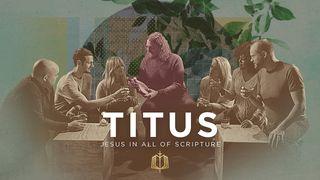5-Day Commentary Challenge - 1 Corinthians 13-14 Sample

Thesis: Pursue Love and Seek Prophecy, 14:1
In this chapter, Paul applied the truths of chapters 12–13 to the Corinthians’ problem with speaking in tongues. Paul had mentioned the pursuit of spiritual gifts several times (12:31; 14:1, 12). Evidently one could pray for a gift (14:13). However, Paul’s “desire earnestly spiritual gifts” spoke to the community’s attitude toward gifts, not to the individual’s own desires for possessing this or that gift.
In 14, we see what Paul meant by the greater gifts. A gift’s greatness was judged by its ability to edify. That was why chapter 14 revolved around tongues and prophecy. Prophecy was one of the greater gifts, because it achieved greater edification.
Thesis Applied: Seek Edification, 14:2–19
The essence of greatness (14:2–5). Verse 2 began an explanation of why they should give special time to seeking prophecy. Paul’s first point was that of the inaccessibility of tongues; it was spoken “to God,” “in his spirit” and was composed of “mysteries,” with the result that “no one understands.”
The contrast of prophesy (14:3) was that the whole process became accessible to human beings and resulted in “edification and exhortation and consolation.” Verse 4 summed up the thought. The issue was self-edification versus church edification. That raised the key issue for the exercise of tongues: within the assembly (14:19, 23, 26).
As if to ward off an extreme reaction against tongues, Paul affirmed the worth of the gift of tongues (14:5). Chapter 12 had already established the equal worth of all the gifts, because their source was in God. It had also clearly affirmed the diversity of gifts as being of God’s own design (12:28–30). Therefore, Paul’s wish for all to speak in tongues and prophesy was a rhetorical device designed to support the high worth of tongues, but also to show the greater desirability of prophecy.
The criterion of edification, however, determined the use and priority of prophecy. When tongues were interpreted, they, too, were of high worth (14:5), opening up the solution to the problem with tongues. The problem was not with the gift itself but with its place in the edification process. It was incomplete in itself and needed accompanying interpretation. The development of the need for interpreted tongues took Paul through the end of this chapter.
“But now”—the profit theme (14:6). Paul next introduced four aspects of profitable speaking. Tongues brought no “profit” in and of themselves. Profit was another way of speaking of edifying (14:4–5) and also referred to the same concept in 13:3. A Christian act or gift brought no profit apart from love’s extension into the lives of others. The four categories (“revelation,” “knowledge,” “prophecy,” and “teaching”) were the building blocks of profit.
Even though it is of interest to the modern reader to have had Paul go into how those four categories actually operated, his purpose was not to discuss the gifts themselves (the specific operation and expressions of the gifts is not at all a subject of interest in 1 Corinthians). His purpose was to demonstrate the indispensability of understanding for profit and edification. That purpose led Paul into another illustration.
Musical instruments (14:7–9). Verses 7–9 and 10–12 form two units of illustrations, each ending with “so you also” and an application of the particular illustration. Verses 7–9 assume the thoughts of verse 6. “Distinction” of tone was vital if what was played was to be “known” (14:7). From the flute and harp, Paul moved to the bugle (14:8). With an “indistinct sound,” the intended message would be obscured.
Verse 9 brought the application. “Clear” speech alone could bring knowledge. Clear speech related to the four gifts mentioned in 14:6 and was vital for profit in the church. That was very pertinent to the way Paul began the entire discussion of spiritual gifts in 12:1–3. Because the problem was knowing whether someone was speaking by the Spirit of God, Paul immediately focused his readers on the standard of content (12:3)–that which could be known. The same idea is in 14:7–9. Tongues, without interpretation, could not give something to be known. Knowledge was, therefore, the foundation of edification.
Zeal and edification (14:10–12). These verses continue Paul’s illustrations of the need for a known sound by showing how languages are communicated in either meaningful or barbaric ways. Who would want to come across as a barbarian (14:11)? In that light, Paul encouraged the Corinthians to let their zeal for spiritual gifts direct them toward an equal zeal for edification (14:12); “edification of the church” (14:12) was the opposite of “speaking into the air” (14:9).
Interpret tongues: help the mind (14:13–19). Paul used the strongest Greek word for a conclusion in 14:13. Interpretation must follow tongues-speaking. Verse 14 explained the personal loss of the one who spoke in tongues: the “mind is unfruitful.” The mind needed to receive the profit of understanding. The benefit from tongues was not accessible to the mind. Therefore, the phrase “edifies himself” (14:4) should be taken to refer to edification of the nonrational part of the person—the realm of the spirit (14:14). That was an area of edification outside of Paul’s interests at this point and was even a detriment to church edification (14:17).
The Spirit was recognized in Corinth, but the role of the mind was in need of emphasis (14:15, note the repeated “mind also”). Use of uninterpreted tongues left the “ungifted” person in the dark and unedified (14:16–17). Like the poor who were left at the Lord’s Supper without any food (11:22), the ungifted were left without knowledge while the gifted enjoyed their spiritual feasting. Paul returned to his praise of tongues on the one hand and his “in the church” desires on the other (14:18–19). Paul presented the godly balance between the gift of tongues in and of itself and its exercise in the church. Why did he want to speak words with his mind (14:19)? Because he wanted to instruct “others also.” The foundation of Paul’s argument was that tongues could not bring that kind of edifying profit and instruction. The following are some of the different ways Paul characterized the misuse of tongues: “no one understands” (14:2); “edifies himself” (14:4); no profit (14:6); “speaking into the air” (14:9); “be a barbarian” (14:11); and “mind is unfruitful” (14:14).
Scripture
About this Plan

This reading plan is from the Everyday Bible Commentary on 1 Corinthians 13-14 and will help you go deeper in the Scripture. It is for anyone who has a desire to grow deeper in their understanding of the Scripture and strengthen your relationship with God by understanding these crucial chapters in God's Word.
More
We would like to thank Moody Publishers for providing this plan. For more information, please visit: https://www.moodypublishers.com/books/bible-study-and-reference/first-corinthians--everymans-bible-commentary/
Related Plans

John 3:16

How to Be Unstoppable for God

God's Presence - a Critical Tool for Advancement

In Crisis but Not Consumed

How God Used Men in the Bible

Week 2: Knowing Truth in the Age of AI

Deactivating Triggers

Titus: Godliness in a Rebellious Culture | Video Devotional

Lent Youth Guide | Jesus' Real Talk During His Hardest & Darkest Moments
